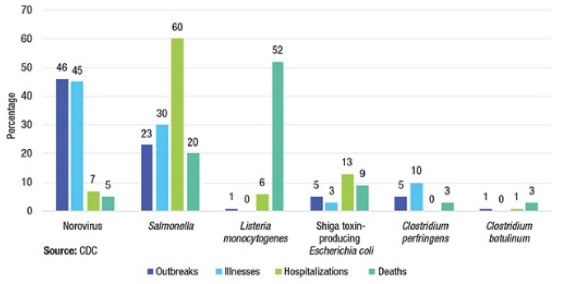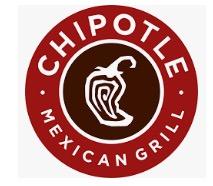As any Game of Thrones addict will tell you, winter is coming. But in real life, it's not the White Walkers that are gonna get you. Winter is the time where we watch in horror as friends and family all around us come down with the "winter vomiting disease," aka the "stomach flu," which are both nicknames for norovirus gastroenteritis. Norovirus is an entity that exactly no one would miss if it vanished from the face of the earth. It is that unpleasant. (See Can You Dodge The 'Stomach Flu?': A Look At 'Expert' Advice.)

Winter is coming. Photos: White Walker - Refinery29. Lord Eddard Stark losing his head - LA Times. Norovirus, the bug that will make you lose your lunch - DW.com
A new report in AAP News tells us about various pathogens that cause food poisoning and the number of cases, hospitalizations, and deaths associated with each bug. Although you might wish to die somewhere around hour #12 of the 24 hours you are going to be ill, norovirus is unlikely to kill you. But the same cannot be said for other pathogens that cause food poisoning.
Although norovirus is easily spread from one infected person to another, usually by the fecal-oral route (1) or by air (See To Avoid Norovirus, Keep Your Distance- Especially In Restaurants) it still gets the most votes in the "Pathogen All-Star Game" ballot. Forty-six percent of food-related outbreaks are caused by norovirus (Figure 1). Salmonella is a distant second (23%), but it is more lethal. While norovirus is responsible for 5% of deaths attributed to food poisoning salmonella is responsible for 20%. But the bug you really want to avoid is Listeria. Food-borne listeriosis accounts for only 1% of outbreaks but 52% of food poisoning deaths (2).


Source: AAP
There is good news and bad news. The good news is that bacterial food poisonings can be minimized by cooking and handling food properly (3). The bad news is that there isn't much that can be done about norovirus. The best advice is hand washing, which should be done anyhow and having companies telling food handlers who are sick to stay home. But companies talk out of both sides of their mouths. Sure, they say that you should stay home if you're sick, but workers often pay a price for doing so, either the loss of income or even their jobs.
What we really need is a norovirus vaccine, which would drastically decrease the number of foodborne poisonings. This has been a tough nut to crack, but a biotech called Vaxart is developing an oral norovirus vaccine, which did rather well in Phase I trials. In the meantime, cook your food properly, wash your hands, and hope for good luck. You will need it. In the US alone, 20 million people will come down with norovirus, making it second only to the common cold.
Next: A look at progress (or the lack thereof) in the search for a norovirus vaccine.
NOTES:
(1) Always comes in handy in case there is a lull in the dinner conversation.
(2) Listeria is so dangerous because it makes a toxic protein called listeriolysin O, which drills holes in cell membranes, allowing the bacteria to spread. In addition to severe gastroenteritis, it can cause a host of other conditions, such as sepsis (bacteria in the blood), and meningitis. Listeria can thrive in cold temperatures. It can grow at 41°F, very close to the temperature of a refrigerator.
(3) Idiots who drink raw milk run the risk of getting poisoned by salmonella and listeria. According to the CDC, "While it is possible to get foodborne illnesses from many different foods, raw milk is one of the riskiest of all."




